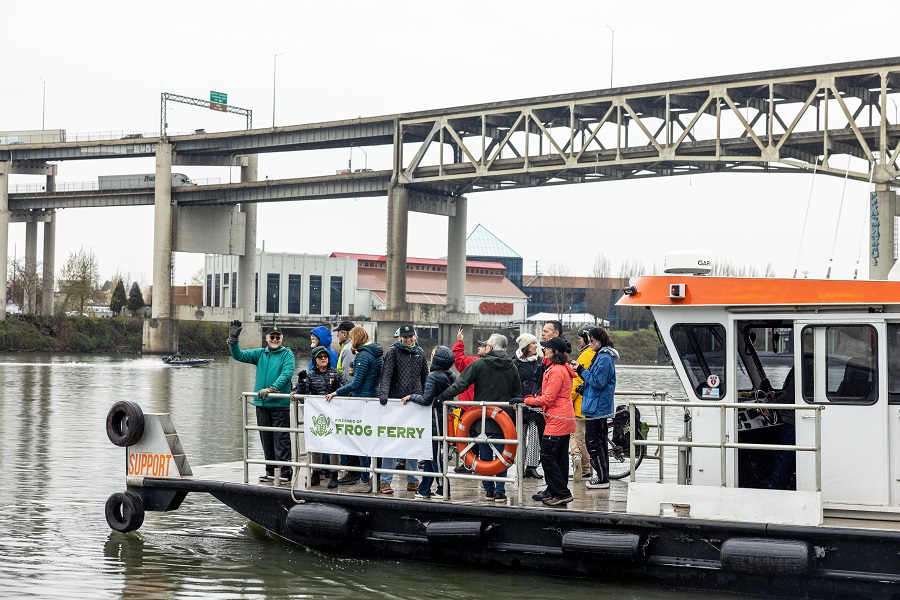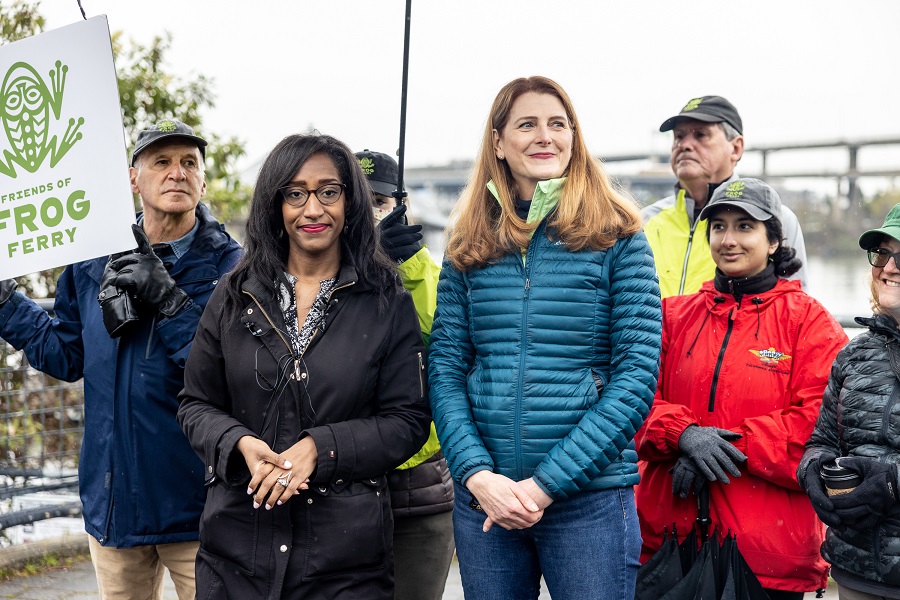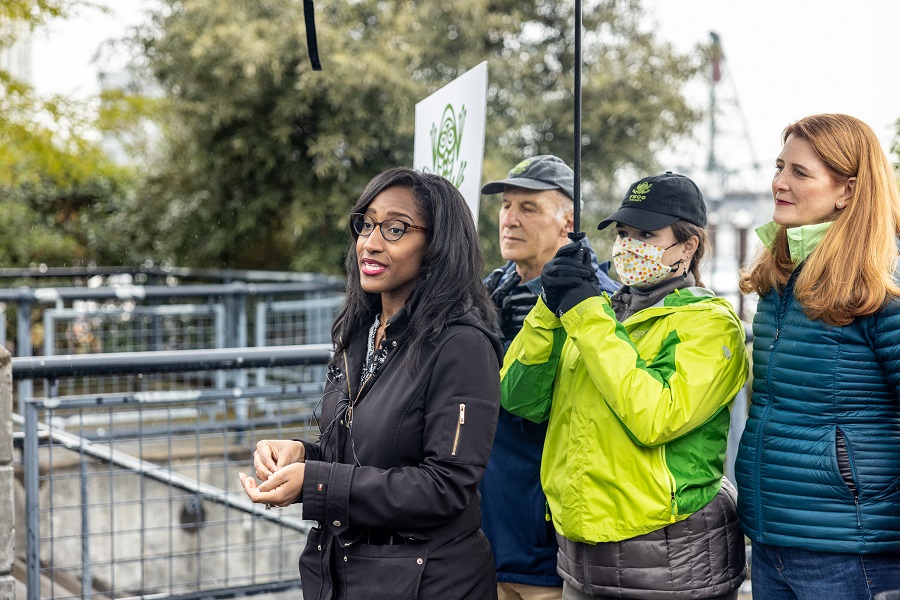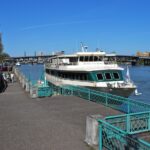Friends of Frog Ferry has relaunched its campaign to establish a public commuter ferry between Vancouver and Oregon City, saying the price tag will never be lower.
Though the weather at RiverPlace Park in the Portland Waterfront was mucky, the message was clear: Portland needs a commuter ferry, and now is the time for the city to take the leap.
“Ferries are best-practices for all river cities. They build resilience and reduce greenhouse gas emissions” said Susan Bladholm, president and founder of Friends Of Frog Ferry, (FOFF) the grassroots nonprofit organization trying to get the city to establish a public commuter ferry between Vancouver and Oregon City.
“This represents an opportunity to revitalize our community.”

Supporters wave at Frog Ferry’s route demo at RiverPlace Park on Thursday. Photo: Jason E. Kaplan.
Friends of Frog Ferry demonstrate what people on a boat look like on the Willamette River on a very cold and raining spring morning.
Standing before the waterfront and wearing an infatigable smile, Bladholm compared Portland to other river cities across the country with successful ferry systems, and said said federal spending dollars made available through President Biden’s bipartisan infrastructure act, specifically $300 million in grants for ferry projects, means the price tag for a commuter ferry will never be lower.
The project needs approximately $11 million to reach completion – but Bladholm says the project only needs $2.25 million from the city to jumpstart the project. The project will then compete for $6 million in federal funds this year and reach the total over the next two years, with a projected launch in 2025.
Bladholm says money by the city invested in the ferry will result in a 10:1 return on investment.

Friends of Frog Ferry board member Nina Byrd (left) and founder and President Susan Bladholm (right) talk about the benefits of ferry service in Portland at Thursday’s press conference. Photo: Jason E. Kaplan.
“We’re still here. This project is shovel ready. We’ve done the research and the reports. What we really need is a partnership with the City of Portland,” says Bladholm.
Founded in 2017, the frog ferry project went into hibernation in September of 2022 after missing a grant deadline for the Federal Transit Administration. The project had previously won $500,000 from TriMet in 2020, after which it complied a 218-page feasibility study addressing the viability and economic impact of a ferry project, as well as projecting potential demand.
The ferry project may have a better shot at city funds this time around. City commissioner Mingus Mapps – who now leads the Portland Bureau of Transportation – wanted to give the project $225,000 in spring of 2021, but was outvoted.
FOFF board member Nina Byrd, also speaking at the event, said the ferry provided an opportunity to economically revitalize a Portland downtown that has received plenty of dreary news, including the closures of retailers such as WalMart and REI.
Related Story: REI Announces Closure of Portland Store
“This project is the nexus that will bring us into the future because our waterways haven’t been activated to make downtown a place that people want to visit,” said Byrd, who described the project as a catalyst for the reinvigoration of Portland’s downtown.
She compared Portland’s waterfront to Vancouver’s waterfront district, and said the ferry would create more business and foot traffic to the businesses along the waterfront.
“This represents an opportunity to transform our city, which is something everyone can get behind. There really isn’t a better time for this project. The key to access is federal funding,” said Byrd.

Friends of Frog Ferry board member Nina Byrd talks about the benefits of ferry service in Portland at Thursday’s press conference. Photo: Jason E. Kaplan
The proposed ferry fleet would consist of seven boats able to transport 70 passengers each. Fares would be $3.50, with a 50% discount for honored citizens. The vessels would be heated, offer breakfast and beverages for passengers, and have a bathroom. Total transit time one-way would be an estimated 25 minutes. Initial boats for the pilot project would run on renewable diesel, with planned electrification for the fleet once charging infrastructure has been installed.
Bladholm says the ferry project will present its case to the city council on May 24 as the City of Portland finalizes its 2023-24 budget. She asked supporters of the project to get in touch with the city council members about the frog ferry project, and to submit public testimony on the frog ferry’s behalf.
To subscribe to Oregon Business, click here.



